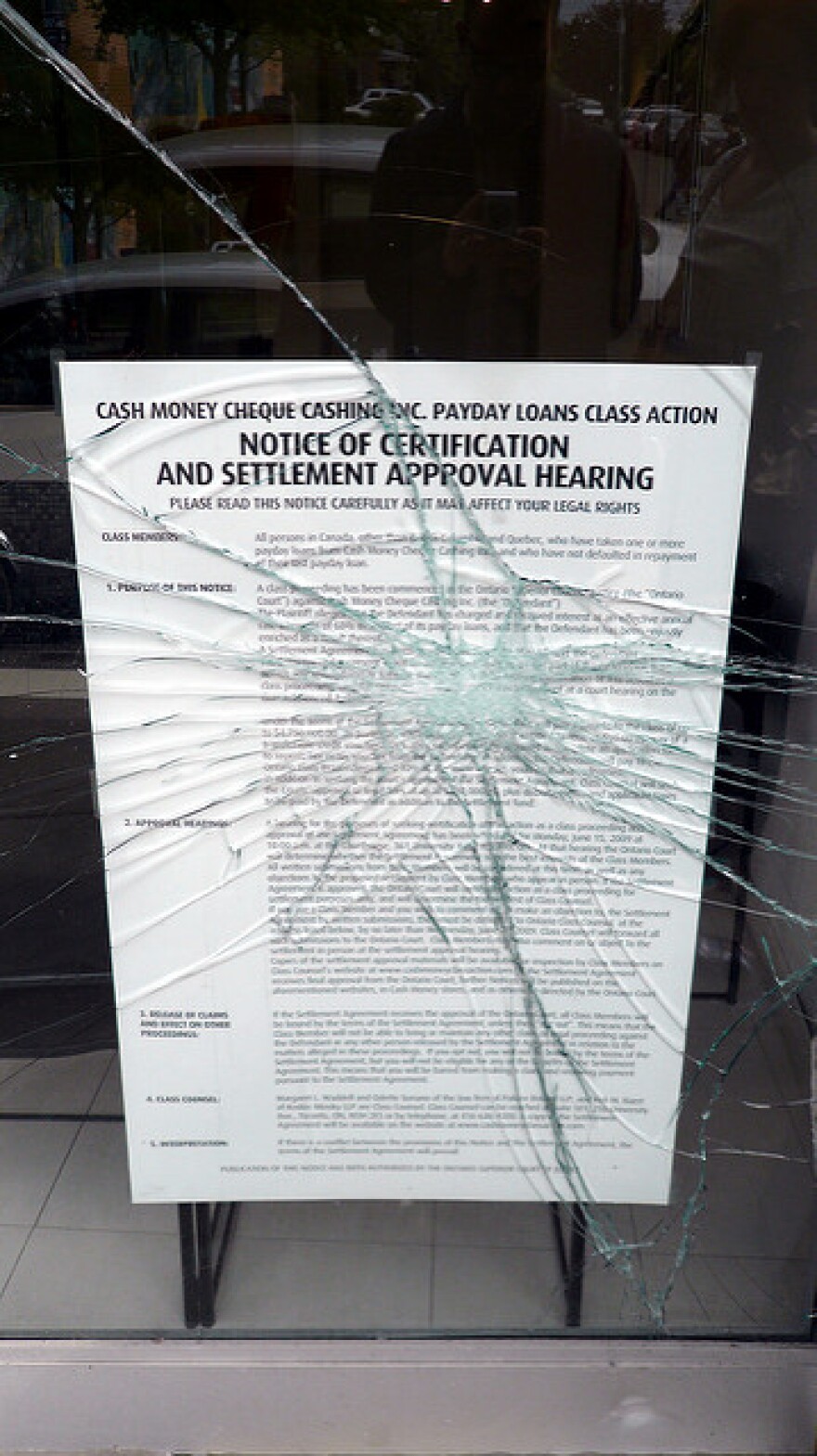Car-title lenders in Virginia may have dodged a bullet earlier this year when the Virginia General Assembly passed on reforming their industry. But the industry now faces a new threat from Washington. Michael Pope continues our coverage, with the latest on the new federal rule that could dramatically undermine predatory lending.
No job? No credit? No problem? That’s the unofficial motto of the car-title lending industry, which offers quick cash in exchange for the title to your car. Jay Speer at the Virginia Poverty Law Center says it’s no accident these loans are marketed to people who can’t pay them off.
“They’re all unaffordable, and they’re made that way intentionally as a means of trapping somebody into a debt situation."
Now Speer and others who have been fighting against what they call predatory loans are hopeful the Obama administration could deliver a knockout blow before to the industry the end of the term. A new rule expected to be proposed by the Consumer Financial Protection Bureau next month would force lenders to prove borrowers can pay back loans before money is exchanged.
“The most important thing is to make sure the loans are affordable. I think that’s sort of what the essence of what a real loan is versus loan sharking, which is just based upon your ability to collect."
Nowhere is that more evident than Virginia, where the number of repossessions has doubled over the last three years. And according to a new federal study, one in five people who take out a car title loan end up having their car repossessed. That brings a lot of calls to the Virginia Poverty Law Center’s emergency hotline, where Dana Wiggins answers the phone.
“We definitely get calls where people, you know, it’s sort of while it’s being repossessed or it was repossessed early in the wee hours of the morning, and they’re calling us the next day trying to figure out how they can get their vehicle back."
Wiggins says many people are taken off guard by how these loans are structured.
“So if you somehow have trouble in that first six months, they get all of the interest plus if you actually end up having to miss a payment or pay late they would get the vehicle and all the interest."
Testifying before the Senate Banking Committee recently, Todd Zywicki at George Mason University said small-dollars loans need to be available -- even at have two hundred precent interest - because if they’re not people will fall victim to the black market.
“When Fat Tony Solerno was indicated in 1974 on 14 counts of loan sharking and in fact one count of having a victim’s legs broken for not paying their debts. He was running eighty million dollars a day in his territory in New York City."
Zywicki says that led to reforms that created the current market.
“And what we saw was the regulatory structure at that period in the 60s and 70s led to everybody coming together and basically saying look we need to make sure that consumers have access to credit products in a competitive market even if they are expensive."
But the argument that people in need of small dollar loans will head to the black market?
“We have seen no evidence supporting that."
That’s Diane Standaert at the Center for Responsible Lending, which just issued a report that says the car-title loan industry drains about $250,000 a year from the pockets of Virginia families.
“So the evidence shows that unaffordable payday loans cause significant harm and a cascade of other financial consequences."
She says she’s looking forward to hearing Consumer Financial Protection Bureau outline the specifics of the long-awaited rule, which has been in the works for more than a year.
“If done correctly, they can prevent the harm that happens to millions of Americans every day by being stuck in the long-term debt trap of high-cost unaffordable loans."
Corduroy is expected to formally announce the new rule in Kansas City next month.



